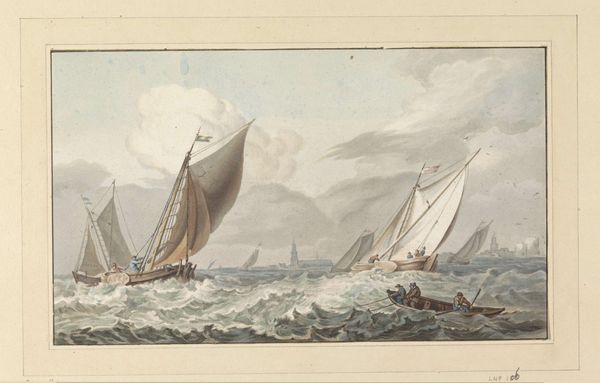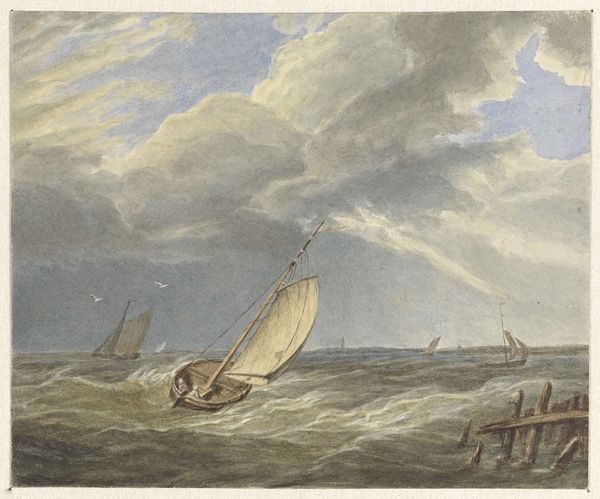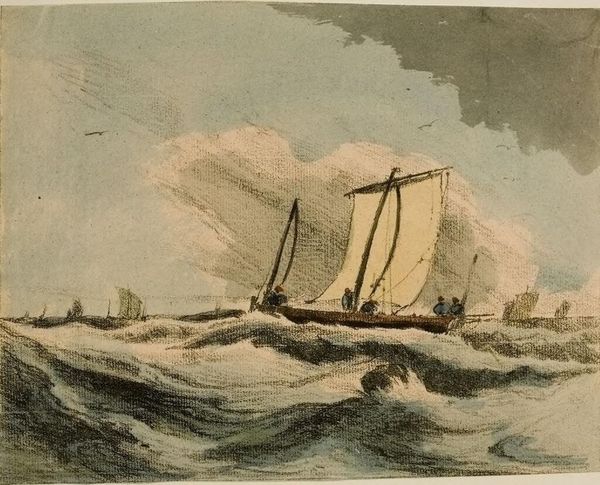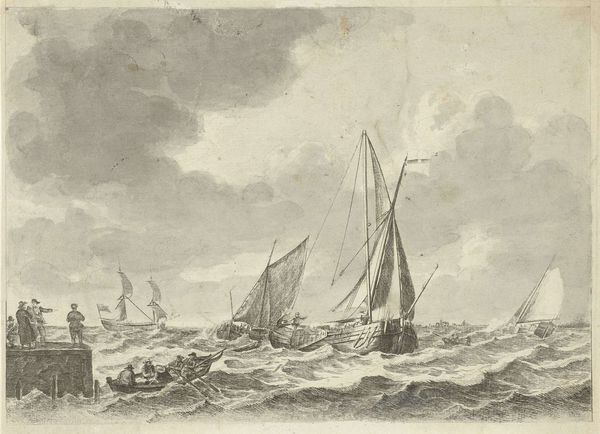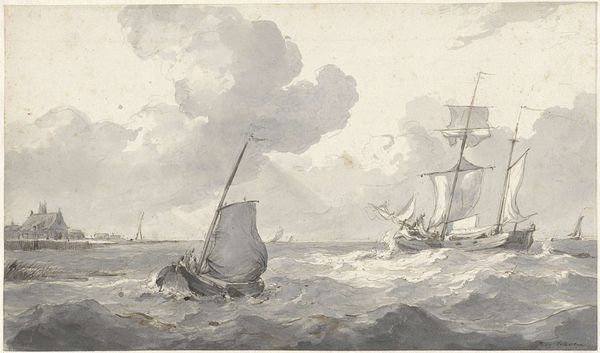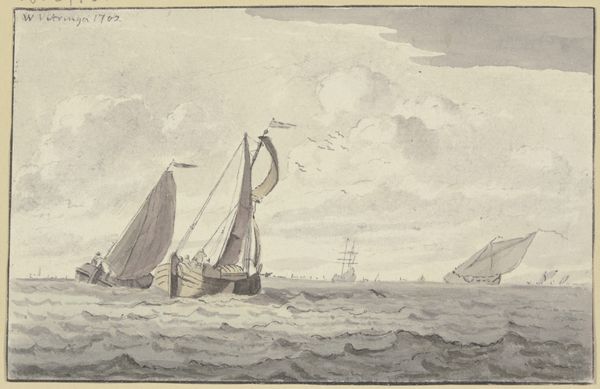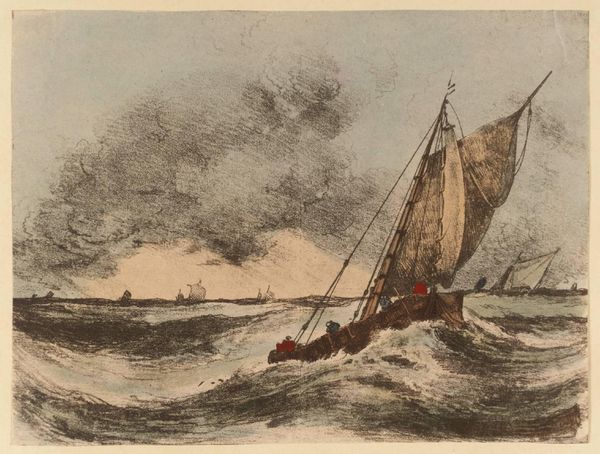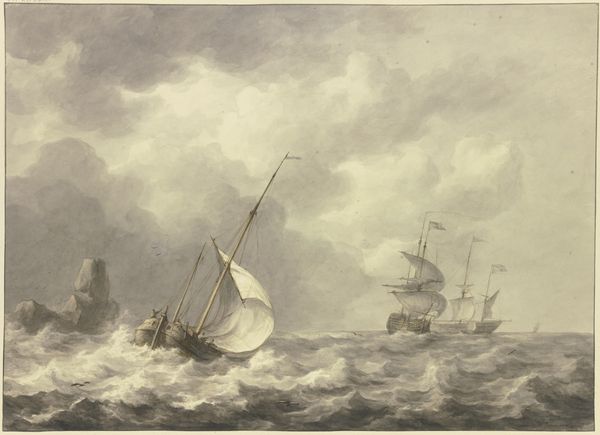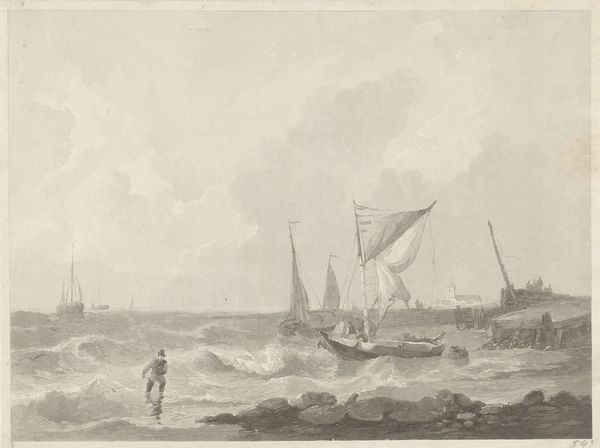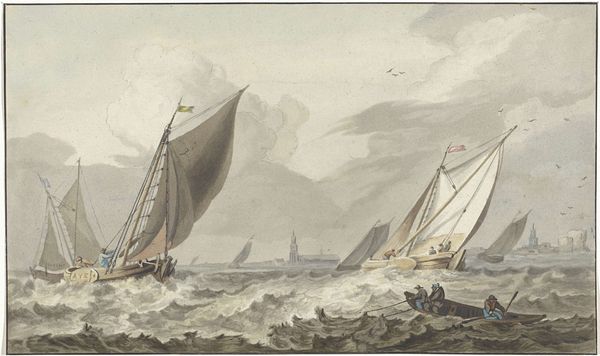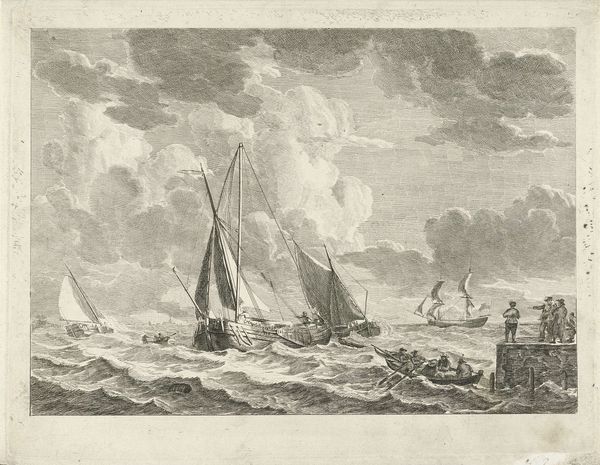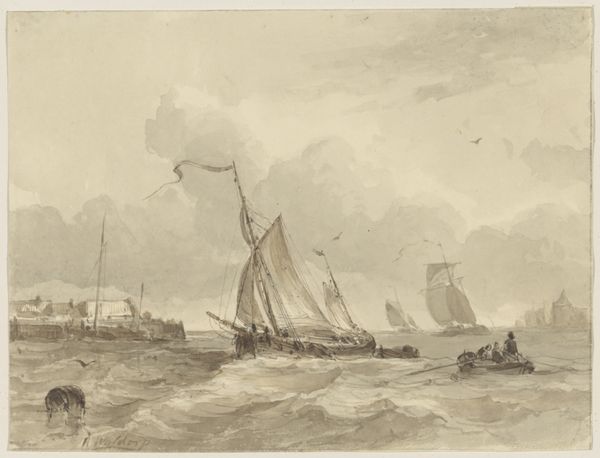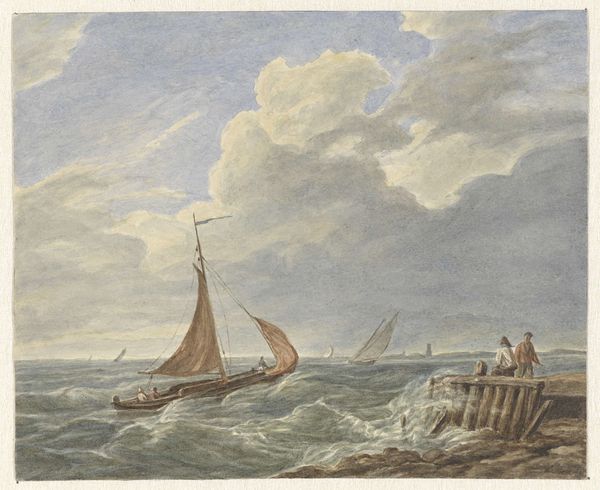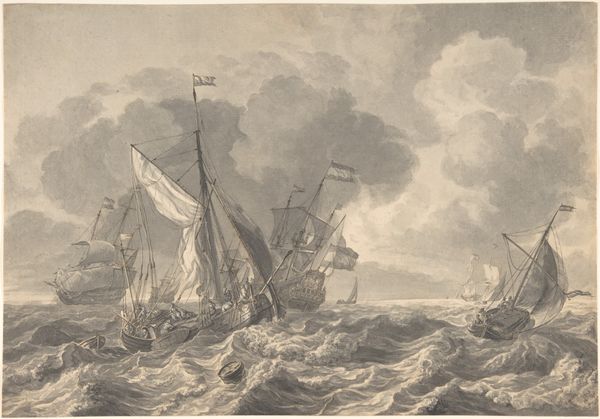
Dimensions: support: 117 x 190 mm
Copyright: CC-BY-NC-ND 4.0 DEED, Photo: Tate
Editor: This is John Varley's "Dunstanborough Castle," a watercolor piece. The turbulent sea and struggling ship create a powerful sense of drama. What historical contexts might have shaped Varley's artistic choices here? Curator: The sublime was a popular aesthetic in that period, where artists tried to convey nature's power. Consider how the Napoleonic Wars influenced British identity. The castle might represent resilience against invasion, or perhaps a melancholic nostalgia for a romanticized past. How does its placement on the cliff further enhance this idea? Editor: I guess it reinforces the idea of the castle as a steadfast guardian against the stormy seas, a symbol of Britain's endurance. Curator: Exactly. The piece also reflects growing interest in coastal landscapes, fueled by both scientific exploration and a burgeoning tourism industry. It gives us a sense of art functioning as cultural documentation. Editor: This has really broadened my perspective on the artwork. Curator: Mine too. It's fascinating how historical context can unlock new layers of meaning.
